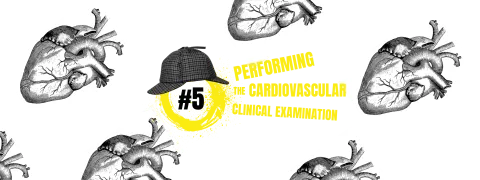
Dr. Hans: Good afternoon, Ms Asparagus. Your GP has suggested you come to see me about your son, Michael. Could you tell me in your own words what makes you think that Michael has a problem?
Ms. Asparagus: Yes, of course, Doctor. Michael has just turned two years old and he doesn’t seem to be like other children of his age. First of all, he only ever says a couple of words. My friend’s daughter, who’s not quite two, uses lots of words and is learning new expressions every day. And when I go round to her place, her daughter seems keen to play with Michael, but Michael just grabs hold of me and buries his face in my clothes.
Dr. Hans: I see. You must remember though, Ms Asparagus, that children don’t develop in the same way at the same speed. There can be quite big differences, and girls tend to develop communication skills faster, especially word production. Tell me, do you talk to your son a lot, read him stories, explain things to him, play games with him?
Ms. Asparagus: Yes, I think so. It’s not always easy, though, because he throws tantrums quite often.
Dr. Hans: Can you give me an example of when he’s likely to throw a tantrum?
Ms. Asparagus: Well, at bedtime, I read him a story to settle him, and he enjoys this, but it’s always the same book, if I try to change the story, he gets very upset and starts screaming, so I get the same old story and he calms down immediately.
Dr. Hans: And what about meal times, can you describe them for me?
Ms. Asparagus: It depends. If I give him his favourite meal – mashed potatoes and diced ham, – everything goes well, but if I try to give him any kind of vegetable or fish, more tantrums.
Dr. Hans: That’s pretty frequent.
Ms. Asparagus: Yes, I know, but his tantrums are uncontrollable, I’m at my wits’ end. It’s the same when I turn on the vacuum cleaner. He just screams and screams, so I don’t use it any more.
Dr. Hans: I understand. How does he interact with his father?
Ms. Asparagus: Unfortunately, my husband has a very demanding job, so he leaves early in the morning and comes back after Michael’s in bed. The weekend is the only time we have together. He tries to play with Michael, but feels very frustrated by the lack of any response. Michael will just sit there pushing his little toy car back and to. I think he’d do it for hours if we didn’t try to interest him in other toys.
Dr. Hans: Thank you Ms Asparagus for your descriptions, they’ve been very helpful and I think I ought to examine your son. Before we fix an appointment, could we just go through this questionnaire together? It’s called the M-CHAT, which means the modified checklist for autism in toddlers.
Ms. Asparagus: Autism! I thought that he might be suffering from autism.
Dr. Hans: We don’t know that yet. There are some behaviour patterns that suggest an ASD. Sorry, that’s Autism Spectrum Disorder. You may have heard of Asperger’s syndrome, a common form of autism. But we need to do a thorough examination before we can be sure.
Can you bring your son at the same time next week for an assessment? I’d like to see your husband too, if that’s possible.
Ms. Asparagus: That’s fine for me and my husband will do what’s necessary to come as well.
Dr. Hans: Very good. So can we go through this questionnaire….
| Find in the text a word or expression (in bold) equivalent to the words or expressions below 1. primary care doctor 2. has just reached 3. two or three 4. to her home 5. enthusiastic 6. seizes 7. hides 8. however 9. rhythm 10. abilities 11. gets angry 12. calm down 13. frustrated 14. crying loudly 15. breakfast, lunch and dinner 16. pureed 17. cut into cubes 18. i don’t know what to do 19. hoover 20. time-consuming 21. absence of 22. backwards and forwards 23. useful 24. consultation 25. children learning to walk 26. way of acting 27. complete, comprehensive 28. evaluation 29. complete |
| A brief historical background
Asperger's syndrome is named after Austrian pediatrician Hans Asperger (1906-1980), who first described it and called it autistic psychopathy in 1944 (autism is derived from the Greek autos, meaning self). When he was young, he studied medicine in Austria, earned his medical degree and became director of special education at a childrens’ clinic. His career was controversial since he was involved in the Nazi regime and was appointed to his high position over Jewish doctors. |
| Translate the following eponymous diseases into English . 1. la maladie de Hodgkin 2. la trisomie 21 3. la maladie de Lyme 4. la maladie de Basedow 5. la maladie de Parkinson 6. la maladie d'Alzheimer 7. la maladie des griffes du chat 8. le syndrome de Wolff-Parkinson-White 9. le syndrome des jambes sans repos |
| Match the following definitions with the syndrome they describe.
1. A psychiatric syndrome in which symptoms of a delusional belief and sometimes hallucinations are transmitted from one individual to another. A. Munchausen syndrome |
Didier CARNET, Jean-Pierre CHARPY, Philip BASTABLE













